"Institutions and many people are afraid of Basque"
- Breath brings creativity and creativity brings breath. The curtain can be lifted at any time.
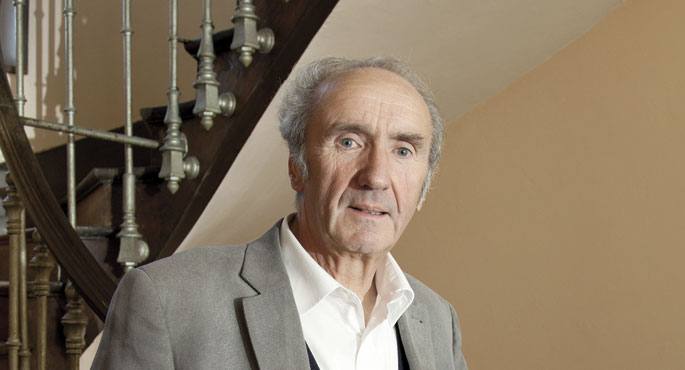
Childhood memories mark the rest of life.
I was happy in the family, very well translated. Ours was the last farm in Donoztiri, and we had a one-and-a-half-kilometre walk to both school and church, but we weren’t bored. We met the other children of the Tipi-tapa neighborhood and walked together. I, high, had something the other kids didn't have. I've been sick since I was sick, I was born with a weak lung, and I've always been coughing, with a fever. I have been sick at home for a long time, and at such times my mother would come to me to read holy books, prayers and tales. It is thanks to him that I have become the taste and love of elaborate texts. But health has limited me so much that I don’t always have to pay attention to sweating or cooling. This is difficult in all, but in a farmer’s house it is even more arduous.
I guess your father would want you to take the sequence.
We were two sisters and three, and my dad was pretty strict and violent with me, because he had it in his head that I was going to become a farmer to take the sequence. I was speaking in good faith, I would have been properly instructed in the task, I would have been properly educated, and I would have been fortunate to have my path traced in the same house. But I wasn’t particularly fond of farming, and how was I going to spend all my life with my health? In the end, I’m thankful for my poor health because he saved me from being a farmer day after I was forced to stop on the farm.
Is it hard for you to untie that knot with your father?
Until recently, I didn’t understand why he was playing with me. He didn't appreciate me. He cared about doing well in school, he wanted me to be a farmer. In addition, for all the years of the bitterness of things, a cousin came to us on vacation and he had a terrible strain for cultivation. Beside him, I was considered a fool. It’s hard to resist traditions and harder when you don’t know that you’re working against the wind like me.
Have you traditionally been a patriot?
In our day-to-day we were talking about pure Basque, not only at home, but throughout the village. At school, Rienta spoke French to us, and the preaching of Masses in Latin was in Basque. Thanks to my moms and family, I have inherited the basics of Basque culture from Ttipitas. For example, our father was cold, but he spent the whole day singing, he did not miss the verses of the festivities, and he was the dance teacher of the young people of Donoztiri before the local festivities. But that was a natural thing for us, we didn’t think it was Basque culture. We were always French, but we were French. For example, his father was in World War I for four and a half years, his father had been imprisoned in Germany for five years, his father had been a bearer of the French flag all his life and his father’s succession had been disabled. And yet, in 18 years, I got into Enbata. It was then that I began to become aware of patriotism. Until then, the word patriot didn’t even exist for us. Imagine that I once asked my mother “xu, which province is xira?” and she gave me “no zaki, what I know is that I’m not a Zuberoamericano”. Until the age of 12-13 we didn’t know that there were seven provinces, and when my father went with his neighbours to Dantxarine, he was on his way to Spain.
And how do you make your way from there to Enbata?
First, at the age of 14, I started working in a printing house in Bayonne, where my father’s brother lived in Belloc’s frailhouse. He told me that for the first time he had been in Spain, where there were Basques, organized in four provinces, who were fighting Franco, and who presumably, famously, wealthy, but passionately frequented Belloc: In the Monzo. Later, I spoke to Father Martzel Etxehand, and when I told him that I was starting to write in Basque, he told me about the Basque Secretariat they had recently created in Bayonne. I attended, and I intercepted three vendors I didn't know at the time: Jakes Abeberry, one of the founders of Enbata, and Julen Madariaga and Eneko Irigaray, involved in the creation of ETA. On the pretext of the books I often approached him, I also met the refugee Xabier Elosegui, and little by little I became interested in the Basque world until I entered Enbata in 1964-1965.
What atmosphere did you breathe then?
There was no patriotic atmosphere, we'd be about 50 at most. It is important to know that the biggest issue here was the last breath of the Algerian war, that it confused the atmosphere, that the Masses were still in Latin, that there was no Basque radio or television, and that 2,000 young people went to Paris every year without office to work in the hospitality industry or to be maids. Politicians both here and in Paris believe that the only way out of this country was tourism, and culturally there was nothing structured. In 1963, when the first Patriotic Day was celebrated in Itsasun, a theater was held in the villages because it was “patronage”, that was when the singing began to be organized, but the Congress of Basques, presided over by Mixel Labeguerie, was the only one that once a year organized a huge party. Finally, thanks to Enbata and the patriots of the time, we began to structure things, add ideas to the table, and bring issues such as that of the Basque department to the forefront of the debate.
When you entered the theatrical world, were you aware that culture could be a tool to transmit political ideas?
I noticed this at the Congress. Abeberry and Davant were our thinking minds, and Jakes always told us that each one of us had to take the drivers of the Basque Country from his field, that we had to structure it, and that this structuring had to come from the patriotic world. I then started as a performer in the Muger group, and it made clear to me that we should set up an association that brought together different groups at the theatre level, from which the Congress of Playwrights was drawn in 1967. One of our main goals was to strengthen our relations with the groups of the South, but we had to climb ten years to create the Basque Theatre Congress. I think that this structuring has been very important because it has helped us to weigh and channel the needs better.
This structurally, and as a creator?
It's just like that. For example, under this structuring, we were clear that we had to take our theatre from small towns to real theatres, and we formed the troop that Matalaz gave at the Bayonne theatre with actors from different groups. Until then I was a performer, I had only written a theatre that had been performed in Donoztiri, but thanks to the Enbata congresses I was more and more aware of my identity and our problems, and that is why I wrote Yes or No. Hence the field, I have actually written engaged works, and yes, without a doubt the object was to pass on our ideas.
Has the professionalism of the theatre changed things?
Amateur groups must continue, but professionalization was necessary. If we want our theatre to be comparable to that of other countries, we inevitably need professionals. The Basque Theatre is a single body, but it has two branches, of those who are enjoying themselves and struggling to live from there. If so in other countries, why would it be in our country? It should not be forgotten that, high up, we are a small town, and with 10 performances all the Basque Country has seen a work. Then, let’s not fool ourselves, the problem of our famous border is always there. The professionals, through gesture and interpretation, can overcome it more easily, but it is a matter of concern to see that the people of the North, who previously went to see the theater of the South, no longer exert this force. Young people have a movement, but it should still be bigger.
Amazingly, the movement of your creation was interrupted by the abandonment of printing and the transformation into a professional of culture. For what reason?
When I was a printer, I was a clerk, and it was necessary for me to prove that I knew how to write, to make public what I had said. I entered the world of culture professionally in 1985, first at the Euskal Herria Cultural Center and later at the Basque Cultural Institution, and I could say that this work has consumed me. I thought that by immersing myself in the culture I could still write more, but this has not happened. Apparently, I'm sorry. Because I am profoundly prone, tenorous, but then in my works of creation I am irregularly at the forefront of everything. In 1985, when I started at the Cultural Center of the Basque Country, I saw many spectacular ones, and to precipitate my confidence, I fell apart. I began to question the value of my works, and this instinct of organization and structuring that I had within me prevailed. I gave way to this, and although the experience of the Cultural Center of the Basque Country only lasted five years, it was very important because we discovered the functioning of the ministries and representatives of the department, and we began to work with the purpose of permanence in the long run. Then came the creation of the Basque Cultural Institute, and I have compensated the interruption of my creation with other works. Fortunately, I’ve seen things progressively progressing, even though we still have shortcomings. Things have changed, but it’s never a gain, because it’s a daily thing to anticipate and embrace new areas. Half a century ago we were so reluctant and shy, I can't say we're in a position to be glorious, but let's go ahead.
And the Basque language goes forward?
To speak English today is a choice. We spoke English before because we didn’t speak any other language. Let's not dream, let's not think that we were more attached to the language before. Now we have the power to learn at least two languages from the Ttipitas, and with the Frantximenta environment it is very difficult to choose Basque. But I take pleasure in seeing the enthusiasm of the new Basques or the visceral attachment of some to the language. We must not forget that our language is not a minority language, but an oppressed language, and that institutions and many people are afraid of Basque. It is Basque that makes us Basque, and they are always afraid that being Basque we will not be French. That is why we are all put in the same sack, that is why we are always under suspicion, forced to justify our minds.
Having just taken the retreat, in order to re-establish the mill of creation?
Now I published 30 years of Aihen Fraga telling stories of my childhood time and impressions. Today, I’m rooting for that, moving some things and removing others. When I mention my father, for example, I see him with other eyes, singing and dancing, although I admit that he did not appreciate me. My life has been rather atypical, since I started working as a printmaker for 14 years, and I have taken the retreat as deputy director of the Basque Cultural Organization. I have created most of my work by working in Imprimeria, which has allowed me to incorporate it into the structures of culture. This would have been impossible if I had not been known for writing theaters.
1946ko abenduaren 11n sortu zen Donoztirin, egun Uztaritzen bizi bada ere. 1965 eta 1985 bitartean euskal antzerkiaren animatzaile handienetakoa izan zen, aktore, zuzendari zein egile gisa, eta Antzerkilarien Biltzarra eta Euskal Antzerki Taldeen Biltzarrea elkarteen sorreran hartu zuen parte. 1985etik euskal kulturaren alorreko profesionala izan da, eta 1990etik 2010era Euskal Kultur Erakundeko zuzendari-ordea. Bestalde, 1979tik euskaltzain urgazle, eta Aihen Ahula, Batita Handia edo Anaiaren azken hitzak liburuen egilea ere bada.
Gehienek gabardina luze bat jantzita ezagutuko zuten Daniel. Udan zein neguan, ongi beztiturik ateratzen da etxetik gizona. Hozteari beldurra dio. Ez zen alferrik sortu bizi guzian arrastoa utzi dion biriketako ahuldurarekin. Baina ekilea da, egiten duena gorputz eta arima egiten duten horietakoa, eta bereziki, hizlari ona. Iturriko ura nola isurtzen ditu hitzak, eskuek lagundutako intonazio egokiz. Hizkuntzaren pobretzeaz eta hizkuntzaren senaren galtzeaz hainbeste hitz egiten den garaiotan plazer hutsa da hitzei pindarrak ateratzen ikustea. Ez dauka alferrik Danielen izena, euskal antzerkiaren urrezko letretan, Piarres Larzabal eta Monzonenaren ondoan.
Epistemology, or theory of knowledge, is one of the main areas of philosophy, and throughout history there have been important debates about the limits and bases of our knowledge. Within this we find two powerful corridors that propose different ways of accessing knowledge: The... [+]
We learned this week that the Court of Getxo has closed the case of 4-year-old children from the Europa School. This leads us to ask: are the judicial, police, etc. authorities prepared to respond to the children’s requests? Are our children really protected when they are... [+]
Gabonetako argiak pizteko ekitaldia espainolez egin izanak, Irungo euskaldunak haserretzeaz harago, Aski Da! mugimendua abiatu zuen: herriko 40 elkarteren indarrak batuta, Irungo udal gobernuarekin bildu dira orain, alkatea eta Euskara zinegotzia tarteko, herriko eragileak... [+]









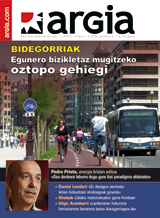


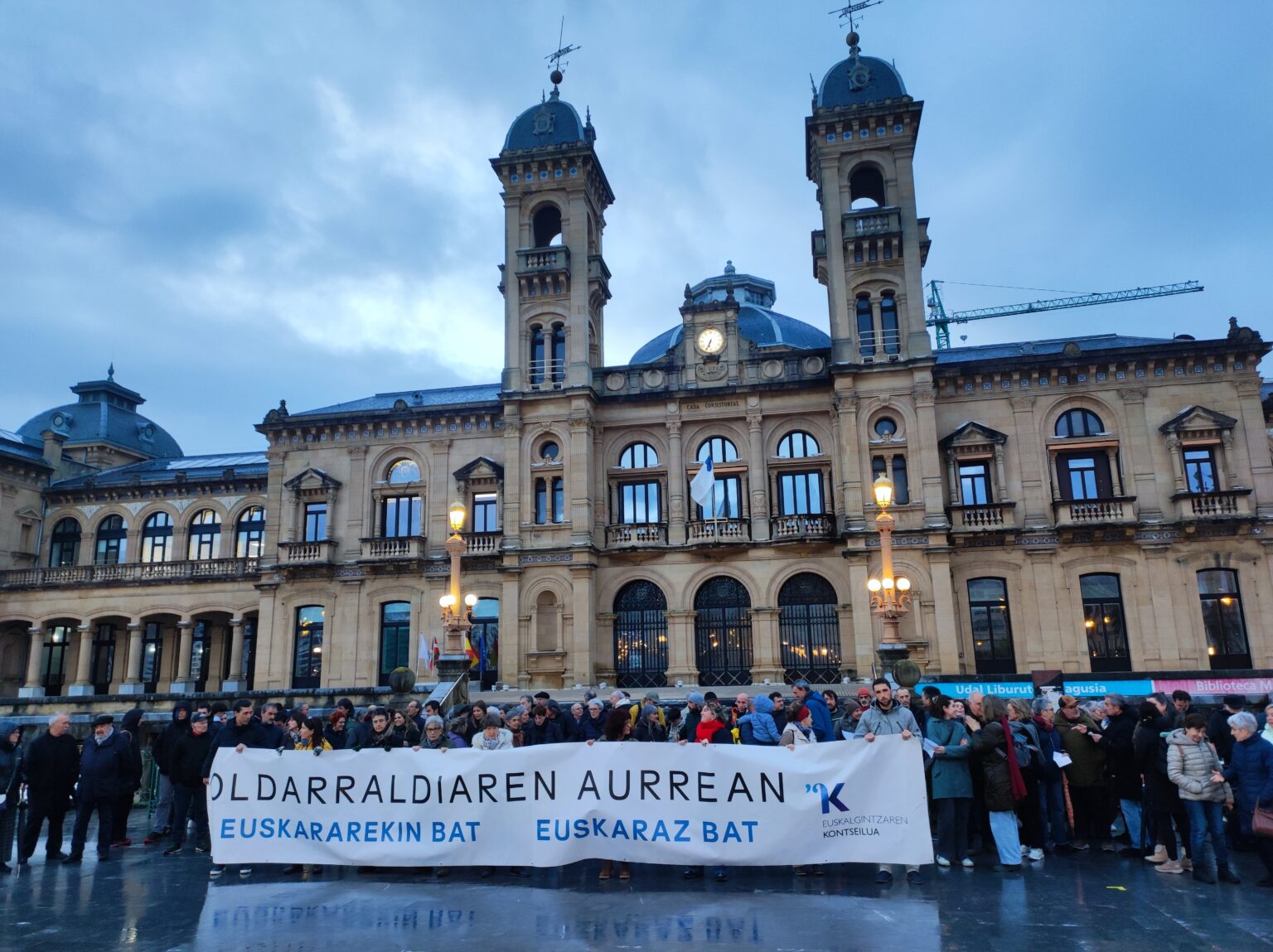
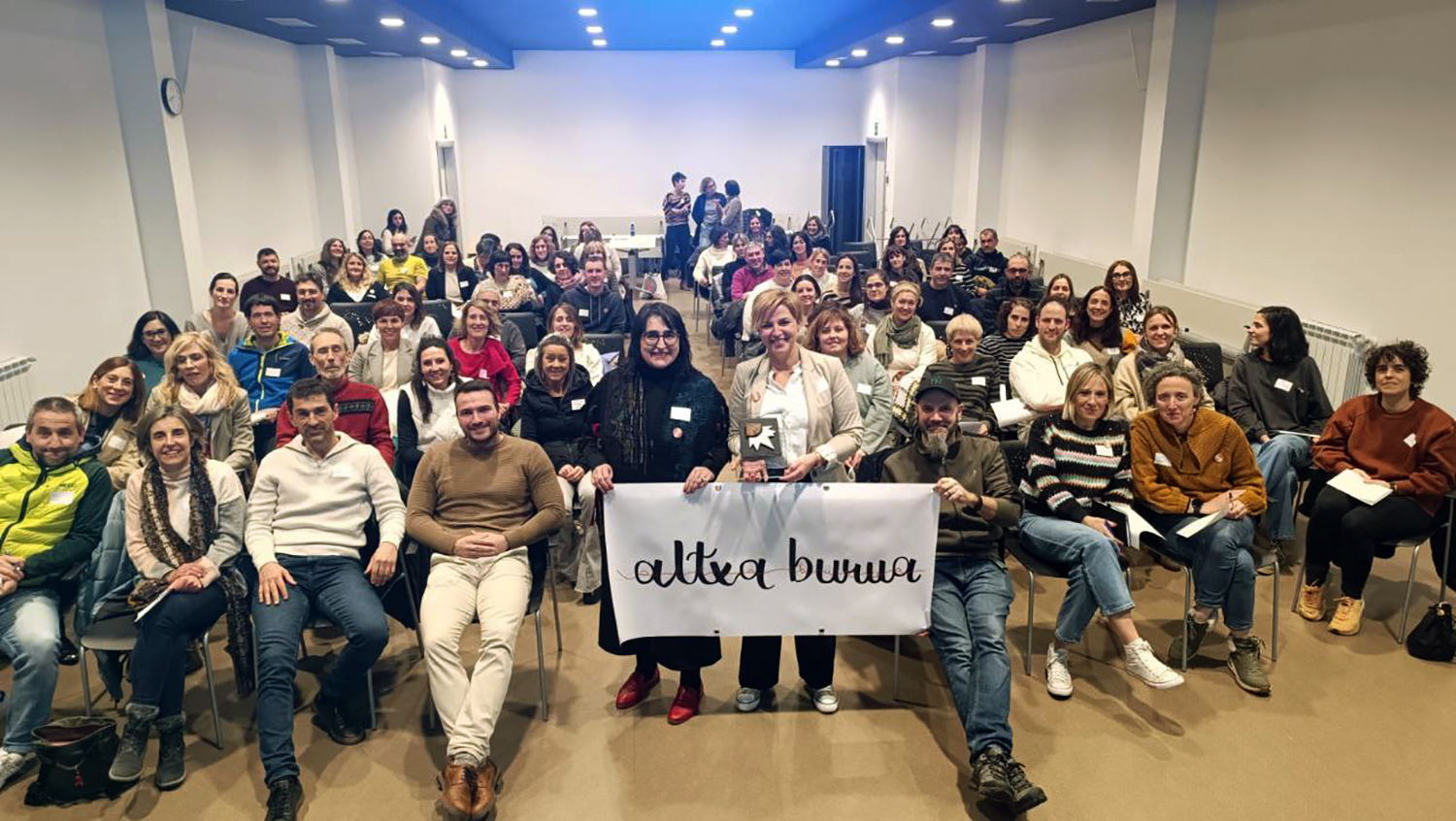



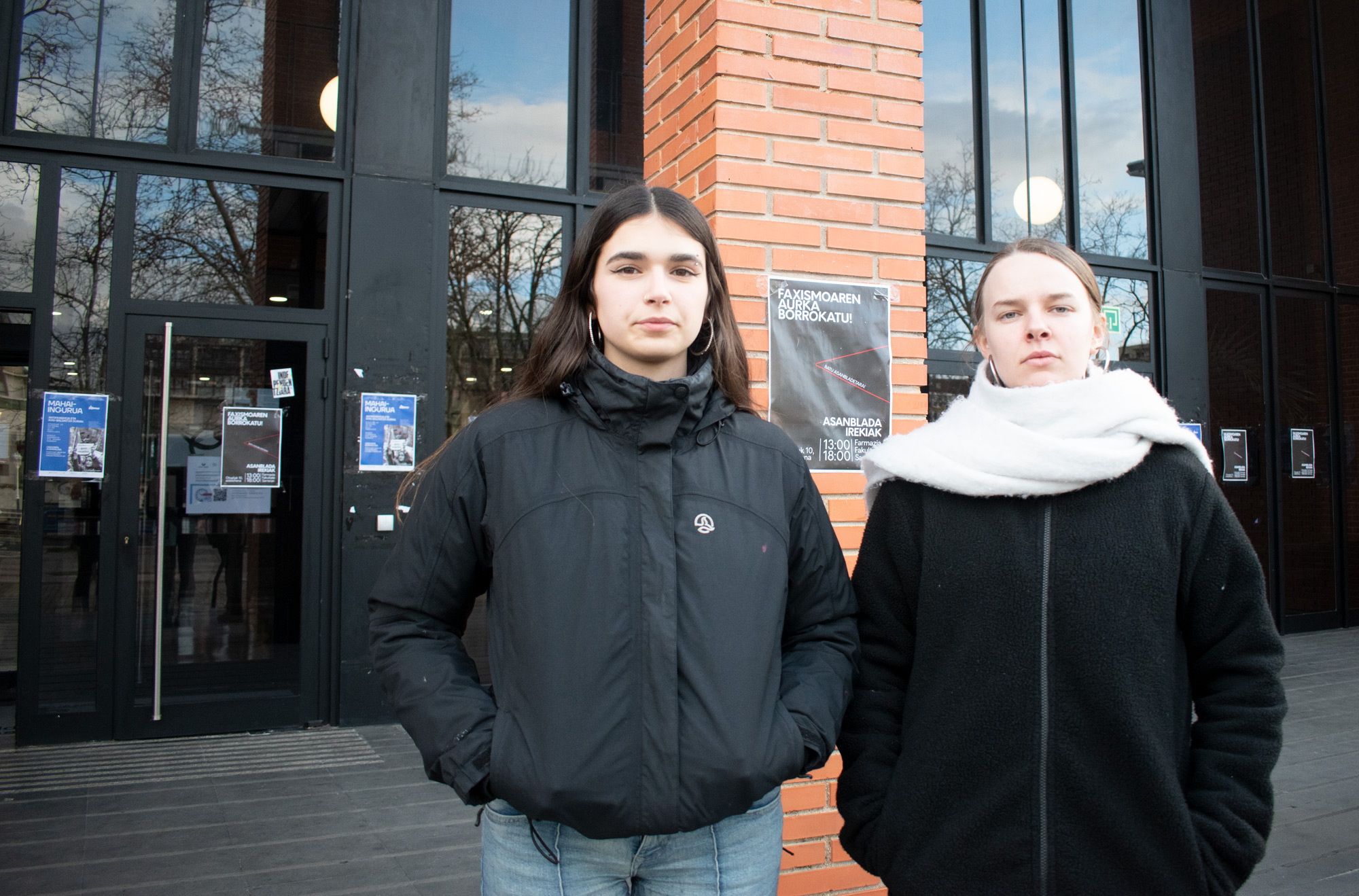
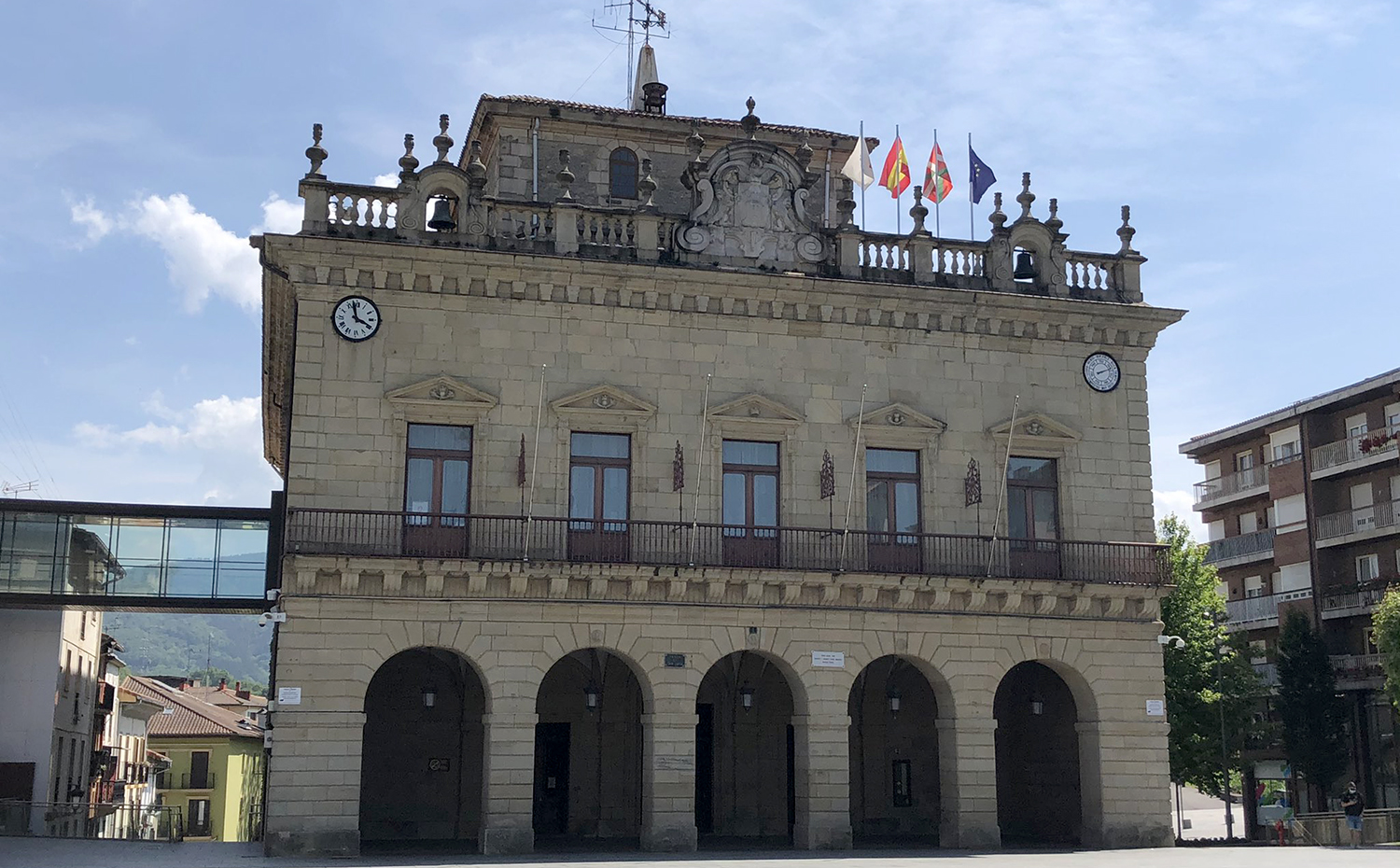

_2.jpg)


